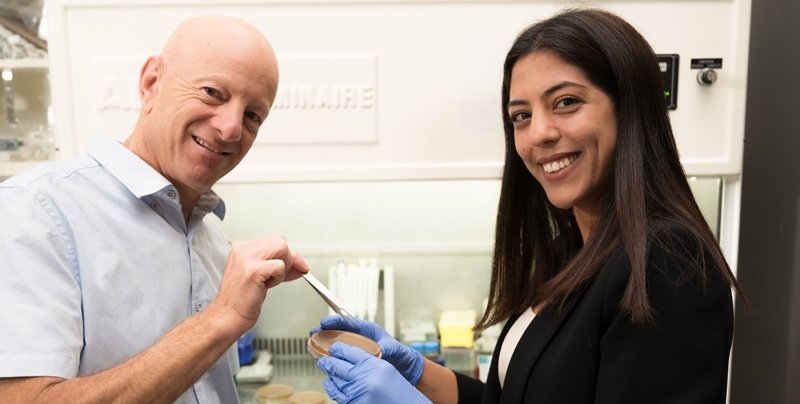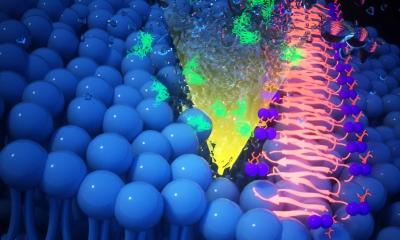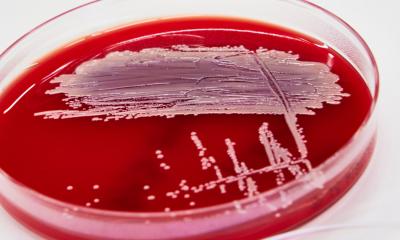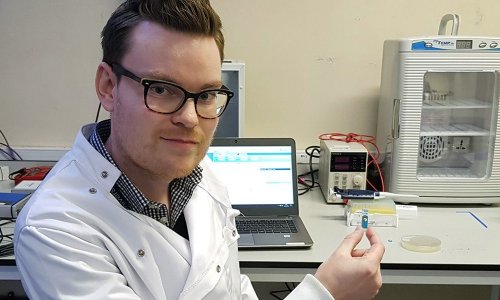
Image source: Ben-Gurion University of the Negev
News • A new tool to combat superbugs
Defeating antibiotic resistant bacteria with 'molecular tweezers'
Antibiotic resistant bacteria are a looming super threat – heralding a time when our drugs will no longer be effective against prevalent infections.
Cognizant of the threat and thinking outside the box, BGU scientists and German and American colleagues have developed a pair of 'molecular tweezers' to destroy the biofilm that surrounds and protects virulent bacteria after entering the body. Their findings were published recently in Cell Chemical Biology.
The bacterial pathogens become, on the one hand, much less virulent to the human body, and, on the other hand, more vulnerable to elimination by the immune system
Raz Jelinek
The team, led by Department of Chemistry Prof. Raz Jelinek, and postdoc in his lab Dr. Ravit Malishev, tested their molecular tweezers on the Staphylococcus aureus (Staph) bacteria. Staph infections have an estimated mortality rate in the US of over 25%, and as much as 40% for drug-resistant strains. The researchers developed two specific tweezers that bind and either disrupt biofilm formation or break existing biofilms. "Our discovery prevents infection without building up antibiotic resistance. As such, it might even be preferable to construct treatments based on molecular tweezers rather than antibiotics," says Prof. Jelinek, who is also Ben-Gurion University's Vice President of Research & Development and a member of the Ilse Katz Institute for Nanoscale Science and Technology. “Importantly, binding the tweezers to the biofilm disrupts its protective capabilities. In consequence, the bacterial pathogens become, on the one hand, much less virulent to the human body, and, on the other hand, more vulnerable to elimination by the immune system."
Source: Ben-Gurion University of the Negev
12.05.2021





